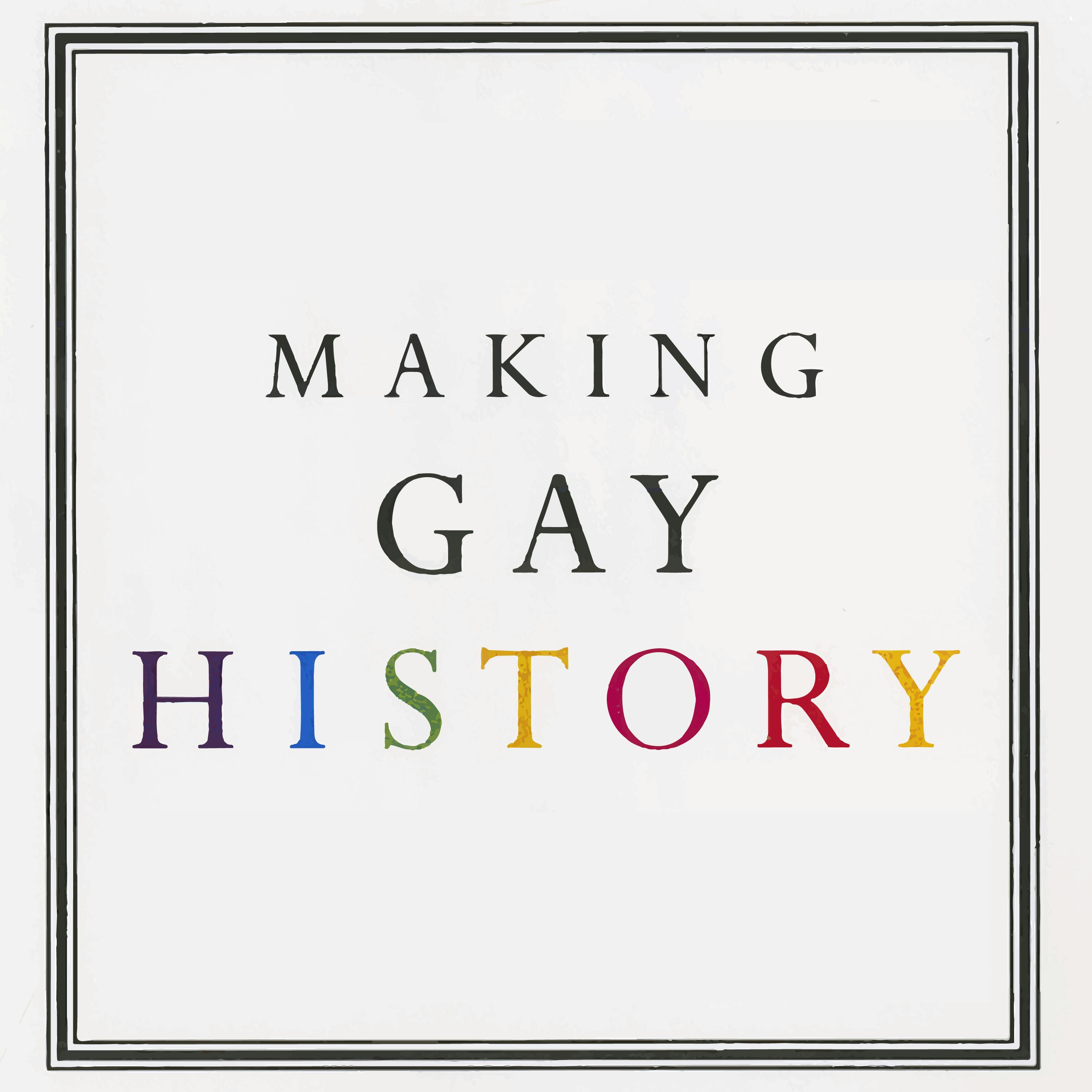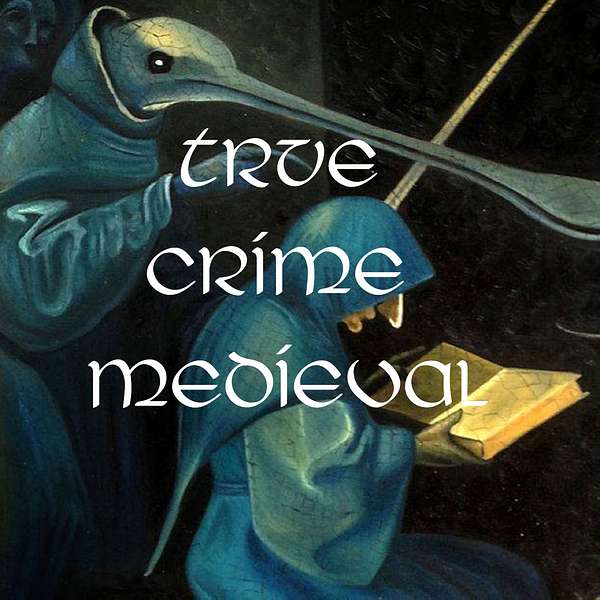
True Crime Medieval
True Crime Medieval
49.Edward I Steals the Stone of Scone, Scone, Scotland 1296
Edward I invaded Scotland in 1296, on account of (he said) their broken feudal obligations. Amongst the usual spoils of war -- prisoners, horses, weapons, nice gold stuff -- he took a rock. Weighing about 335 pounds. We discuss the theft of the Stone of Destiny, and its subsequent history. Including, to our delight, a 20th century liberation of the Stone, wherein four university students break into Westminster Abbey and take the stone back to Scotland. Then it went back to England. Now it's in Scotland again. It's a very important rock, really.
[inaudible]
Speaker 2:Hello and welcome to true crime medieval. 1000 years of people behaving badly. I'm Ann Brannon. And I'm your host in Albuquerque.
Speaker 3:I'm Michelle Butler in Maryland, the most evil state in America.
Speaker 2:Uh, you may have noticed that our recording did not show up at the usual time. And that is because we had technological difficulties, which involved one of us having a new computer and not realizing that the factory had set the recording volume at 33%, which really isn't enough to actually make any noise. And so it took us a while to figure that out. Okay. It was me, it was my computer. It took me a while to figure it out. I have nothing to do with it. It was all my fault.
Speaker 3:No, the previous technical difficulties were my fault with having my microphone set up wrong. But this time I I'm innocent. No, It's a weird choice for the factory setting to be so super low.
Speaker 2:Yeah. And I didn't know it. I didn't realize it until I tried to do the sound editing and discovered that I was in many places completely and audible, which wasn't actually good, really? That couldn't be fixed. It. Wasn't one of those things, because if you made it louder, if you, if you upped the, if you up the volume at all,[inaudible] I got very distorted. It was not good. So any rate we're back. Hi. And today we are discussing that time a while back when Edward, the first stole the stone of school. And so this is in school in Scotland in 1296. That's what we're talking about today. And we have, we have really enjoyed learning about this. I was looking forward to Indiana.
Speaker 3:This was great. This was great. I had such a great time doing the research for this.
Speaker 2:I did too. And yeah, I didn't do so. Our background we'll start with a background. Edward, the first of England who had become king in 1274 was really, really, really good at conquering and subjugating his neighbors.
Speaker 3:Oh man. It's like, it's a super power. He's super good at this.
Speaker 2:He is. Yeah, unfortunately. Yeah, it doesn't make us happy, but there you are. He had conquered whales in 1283 and built Norman castles all over it. And after Scotland, which had been having, um, a succession crisis and we talked in great detail about this in our podcast, uh, about Robert, the Bruce killing John Coleman at the high altar Scotland had been having a succession crisis and he had gotten involved in that and in brief the succession crisis, which is called the great, cause I think that's a hilarious name for a succession prices, but
Speaker 3:I know I ran across that term. What the heck is that? I thought maybe I thought maybe it was independence. No, no,
Speaker 2:No, no, no. Cause that would make sense to me. The great cause would be independence, but no, no. It was trying to figure out who was going to be king. Um, there were 13 claimants to the throne of Scotland and all at, at the time of the succession crisis and the guardians of Scotland had asked king Edward to arbitrary, which he did, but as a condition, he required feudal allegiance from Scotland. And then he gave the crown to John valley, all who was weak. And then he took, um, he took over Scottish rulings and he ordered this Scottish king to come to the English court to be subject to English law, Bally hall renounced his feudal homage in March, 1296. And so in Glenda invaded Scotland, um, you might suspect as I do that, Edward had actually engineered all of this just so as to have a reason for invading the word would last in different stages until the 1st of May, 1328, when Edward the third would sign the treaty of Edinburg Northampton, which recognized the independence of Scotland and Robert, the Bruce was key. Things would fall apart and Edward, the third would invade and start the second war of Scottish independence in 1333, which was going to last till 1357, but of spoiler for history. Eventually James, the sixth of Scotland, whose was the son of Mary queen of Scots inherited the English throne. And so the personal union of the two countries existed at that time. And it would become a political union in 1707 campaigns to leave the union and be independent. Um, Scottish independence started in 1853 and that kept going on until today. Uh, and actually that's going to matter. It's not just looking into the future, it's going to matter to the stone of school discussion, but at the moment. So right now where we are, the pro-independence party has won a majority of, uh, vote to the Scottish parliament. But they've said that they're not, there's not going to be a referendum and because of the, until we're out of the whole COVID pandemic, which,
Speaker 3:And Brexit really changed the politics of that because in the referendum, uh, it just squeaked past to stay with England. But, but I suspect that that might go differently. Now, now that BR, now that England has left the
Speaker 2:Yeah. Scotland might eventually we might actually vote for independence. Yeah. So, so here we are now, now we're going to go back to 1296. Okay. Back to 1296, every, the first invaded on account of Scotland heads had broken it's funeral. It's feudal homage. Oh really? Oh, come on. Anyway. So he had made it and one of the places that he trashed as you trash places, if you're invading was Schoon, because of was at that time, the seat of Royal authority in Scotland, uh it's Edinburg now, but it was like screwing them. So it's where the Kings were crowned or made official. There weren't really, uh, coronations at that time, but they were, they were officially made case why else trashing places and killing people. Edward also acquired what we now call spoils of war. That's not what they were called then, but that's what we call them now. And spoils of war generally are like prisoners, which in the middle ages, you get prisoners and then you can get ransom for them. So that was some money there. Or you might get horses or equipment or various treasures. As for instance, when the Venetian crusaders took the bronze statues of the horses of the horses and Constantinople at the Hippodrome, they took them to St. Mark's Basilica. That was spoils of war. It was a stupid, bad war and actually a giant crime, but it was spoiled with war. Okay. Spoils of war do not generally involve big rocks rocks. Aren't worth money unless they're made out of gold or silver, which this isn't, and they're very heavy. So they might be moveable goods, but only just, but Edward took the stone, which was about by the way, 335 pounds out of school, Abby, and dragged it back to Westminster Abbey and put it under the seat of a wooden throne. He
Speaker 3:Made that throne specifically.
Speaker 2:Yes, he did. He took this stone of skimming back and he made a chair for this. So why, so then we have, what is this 335 pound rock that is worth dragging from school to London? The stone was brought to Schoon by Kenneth McKeldin, who was the king of the pics and what would become Scotland after Vikings had made staying at the Abbey and I own a completely untenable. And so it had been, um, uh, what do you call it? There's a word for it abandoned. So it had been abandoned, uh, and he moved over, he moved the relics to Dunkeld and he took the to school. It had gotten to Iona. Well, we don't really know. We don't know how it actually had gotten there, but the story is that Jacob had used it as the pillow. He was sleeping on when he dreamed of angels and that ladder going up and down to heaven, a very uncomfortable pillow. I don't want to sleep myself on 335 pound rocks, but whatever. And then it went all around with Egypt and Spain and blah, blah, blah. And it ended up a Terra where I wish Kings were crowned and finally got scoped, but no, this actually didn't happen. And the reason we noticed didn't happen besides the fact that this is a very fanciful story. It doesn't really fit with history as usual, is that the sandstone, which the stone is made out of is from around school. So no it was from there. And so maybe Mechelle did bring the stone from my own school, but it wasn't this one. So at any rate, this comes from the area, but it was there at any rate and McAlpin established it. That was in about 8 43. And either the king sat on it when they were getting invested or it was an altar, but there it was. And it was a very important symbol of the sovereignty of Scotland. And that is why Edward stolen. So he took it to Westminster Abbey and he put it in the coronation chair and Robert, the Bruce was going to be the next Scottish king crown, but not on that stone because you know, he was in school navvy but he wasn't on the stone, but wasn't at the stone. And that was in 1306 for 1328. England was supposed to return the stone to school as part of a peace treaty. But the Abbott wouldn't give it up. It was apparently changed the floor. And, um, and then the habits first up the gilding on the chair on, uh, apparently because it was so exciting, that was that they were getting to keep the Relic. So it stayed in England. And even though it belonged in Scotland, it had been stolen from Scotland and England. So they were giving it back. England did not. And so English Kings got crown on it. They've been using, it has been using it though after James the sixth, the first James, the sixth slash the first took over. It was Scottish Kings too. But you know, the English Kings have been British gigs have been getting crown there. And for a while, they were only just English until, until, and now we come into the second part of the stealing of the stone of school in 1954, Scottish students, they were from the university of Glasgow. Uh, they were, and they were part of a group, the champion, Scottish independence. They drove down to London. They were, um, it's an 18 hour trip. We were told. And they got into poet's corner in Westminster, Abbey at night. And they took the stone out from under the chair. It broke into two pieces. I found that quite alarming. Um, but they got the two pieces and the two cars and they got away. And the larger piece was so heavy that the Springs on the car sagged badly. So how the hell they were going to get it back if they hadn't actually broken it? I don't know. But at any rate, they, um, they got it back to Scotland and they added the two pieces. They got the two pieces back to Scotland and they paid a stonemason to put the two pieces back together. He did this with a brass rod, uh, and they took the stone to arborist Abbey, which there, there had been a treaty there. One of the, one of the many peace treaties had been there, uh, cause SKO Nabby was long gone. There wasn't any Abby, you couldn't go back to school. You could go to the place, but you can't go to the Abbey. Although, um, they have they've set up, um, like, uh, kind of like a stone there to memorialize where the stone of school was at school. And so you can see that the Abby's gone individually. It was taken back to Westminster Abbey in February of 1952. So it had about a year of liberation. And by the way, the police knew exactly who had taken the stone, but the students weren't prosecuted because it would not, it would have been politically problematic to do that. Can you imagine Scotland was going to go really up in arms if you prosecuted students for stealing things that actually belong to Scotland, sir, Henry Shawcross said in parliament that it was just, uh, it was just vulgar vandalism show disregard for the Abbey. And then, so they just weren't even going to pay attention to it at all. Uh, right. But the students were very popular and quite vocal about the whole thing in Hamilton. Who's now a lawyer and a politician wrote a book about it. He's 95. He's not dead yet. Gavin Vernon who is now dead, was an engineer. And on the 50th anniversary of the return of the stone to Westminster, he went to that ceremony and Westminster led him in for a special visit. The person who, uh, who opened the door and said, welcome back, Mr. Vernon. I liked that part. Kay Matheson. The only woman in the group she had been driving, one of the cars became a teacher and a Gaelic scholar. She's dead as well. And Ellen Stewart, who's also now dead became a Glasgow businessmen. And now, now the stone is back in Scotland. It said Perth city hall, uh, school was close to Perth and it became an it's. It's a PERT city hall because in 1996, the British government in an attempt to be conciliatory because more Scottish referendums were right around the corner. They declared that the stone would go back to Scotland and it would stay there unless the British people needed it for coronations. So I'm really looking forward to see what happens at the next Carnation. Will the stone of school be taken back to Westminster because you know what? I bet money. Nope. I don't think it's going
Speaker 3:Only. It's only odd load. They didn't return it to Scotland. It's on loan, which I think is a Dick move. I'm just going to be honest, if you're going to go through all this, oh, it's been 700 years. We feel bad about it. Please don't vote to leave. We'll Rock back, but not really. We still own that. It's the most British thing ever. So English.
Speaker 2:I totally agree with all of this. I totally do. But you know, a good thing is it's going to be hard to hide though. I mean, I'm reminded of, I won't name the city, but there's a, there's a city of England where I was doing research and there was these manuscripts that were from there that were supposed to be being held in, um, uh, a different city library altogether. Uh, and what the city would do is say, we really need the medieval manuscript of the blah, blah, because we're having a ceremony. And so then that would get loaned to them. And then oddly enough, it never went back because they couldn't find it. It used to be here with though it's gone. But to see you can do that with manuscripts, but I don't know if you can do that with a 335 pound rock. I don't, I think they're going to have to be, I think Scotland's going to have to be just more direct in that and say, no, you may not have the stone back, which is actually our stone go away. Okay.
Speaker 3:It would be so much more politically savvy to have said, here it is here. It's back. It's yours. May we borrow it time? It's time to crown somebody. Yes.
Speaker 2:Not
Speaker 3:We licked it. It's ours. We're taking it back anytime we want.
Speaker 2:I would, I would've liked that. That would have been a good move, but we we'd really love to be able to borrow. It could do you think you could agree to that, but we know it's your stone, but we've gotten so fond of it and it looks really good in the chair.
Speaker 3:We haven't, we haven't yet accepted that. You're like participants in this union. You're still the lesser partner.
Speaker 2:Yeah. We're leaving, leaving you stupid. We taken our rock and leaving. That's what
Speaker 3:I had seen a claim that independence from England is the most commonly celebrated holiday around the globe. And I went to try to find out that The two countries have independence from England as, uh, as a holiday. And, um, according to qui, which they're usually right on top of things, um, roughly every seven days, somewhere around the globe, a country celebrating independence from England, you know, who needs to learn to stay home and mind their own business. It would be the English.
Speaker 2:It's like here's yeah, they definitely, they need to give the rock spec.
Speaker 3:I think that the same thing in Wales did you know that I didn't know that they, he stole Edward the first, when he conquered Wales stole their regalia as well. And it has disappeared.
Speaker 2:Oh yeah.
Speaker 3:The stone still exists. He didn't grow out or something. Um, but the Welsh regalia, there was a crown and there was something else and it's gone. It just disappeared into the battle. Never to be seen again.
Speaker 2:Uh, you know, they've melted it down at some point to pay for one of the wars of conquest
Speaker 3:During that last 10 years of his reign, Edward, the first spent a million pounds on war because he was, he was, he had problems in Scotland. Of course he was trying to take over Scotland. You could just stay home and mind your own business. But no,
Speaker 2:There are funeral agreement. Michelle, Shirley you've see that. That is a valid reason to go and slaughter them and steal their rocks. Surely you understand that?
Speaker 3:Um, there, there was trouble in Wales because of anytime, anytime Edward, isn't looking directly at them, there's trouble in Wales and there's trouble in Gascony because Philippines is sneaky. And he had, he had usually Edward, the first is pretty trickster. There's a few, um, incidents from his life that are very tricky, such as, for example, when, before he was, before he was king during the Baron's war, Simon de Montfort was up in arms, literally against Henry the third and Edward, the prince at that point army intercepted reinforcements that were coming, um, headed by Simon. Montfort's two oldest sons. He captured them and he took the banners and he put them in front of his own army, which allowed him to get closer to Simon demand for its army before they realized that it was a trick.
Speaker 2:Yeah, I remember
Speaker 3:This. Yes, he's very sneaky. But anyway, he got, he got the trickster got tricked by Phillip the fourth with this Gascony thing, because he got told, okay, we have to act in public. Like I'm going to take, ask any from you, but really what's going to happen is I'm going to grant it back to you. And of course that part didn't happen.
Speaker 2:It's like the stone of scone. Yeah. We're going to take it for a while, but
Speaker 3:So Edward really, really wanted to go kick over in Gascony and, and take his land back. Take, take this, this, um, area back that had historically been his, but he's just, he's just bleeding money, trying to prosecute all these wars in all these different places. And he ends up actually reading of Edward. The first made me a little bit more sympathetic sympathetic to Edward the second, because he inherited a mess.
Speaker 2:He inherited a mess and it looked then like, what, you know, his father was so strong and did so many things. Yes, he did. And left a mess for the son who was not the kind of king he was anyway. Yeah. It wasn't fair.
Speaker 3:I've learned some really interesting stuff about Edward. The first from this reading, he was at the time of his death. He was the longest lived English king 68.
Speaker 2:Well, that is pretty good. Yeah.
Speaker 3:He, he lived to a ripe old age. Um, part of what caused his death was how mad he was at Robert. The Bruce had a stroke or something. He was so angry. Um, when he found out that Robert, the Bruce had, uh, rebelled his health to starts into this precipitous decline, he's actually trying to raise an army and get up there. And he eventually just dies by the side of the road. He's so angry about it.
Speaker 2:Um, yeah, he was never really able to make the Scott's behave.
Speaker 3:I learned that he was the most widely traveled English Monarch until the modern age. Whoa. He had been everywhere. He'd been Wales and Scotland and France and Sicily. And he was on crusade. Um, nearly got assassinated in. Well, he was on crusade. Yeah. He's an interesting dude. Um, I enjoy reading about him. That doesn't necessarily mean that doesn't necessarily mean I'm more sympathetic to him, but I did find it very interesting to read about him. Um,
Speaker 2:Interesting. But I do not like him hammer the Scots and cursive whales.
Speaker 3:He fled up, robbed the Templar, um, headquarters in London, which I actually want to circle back to at some point as a separate crime.
Speaker 2:Oh, okay. Cause we actually have we've we've covered the Templars, but we can talk about that particular piece of it because we were focusing on the fact they all got slaughtered in France. Yeah.
Speaker 3:She broke in and robbed them in order to finance their resistance to Simon Dumond Fort
Speaker 2:Lord. Well, what else did you find out? What? Cause you were telling me you found out many lovely things.
Speaker 3:I learned so much that it was great. Um, I did, I very much enjoyed reading about Edward.
Speaker 2:Not forget that the whole point we're here today is that he stole,
Speaker 3:I don't know that I know, but I'm not going to say that he has his good parts. I he's very, he's very competent. He's a very competent king who follows an incompetent one. Henry the third is so bad at his job that barons take over and make him a puppet and say, you know, you can't do anything without us approving it. And we end up, we end up in a civil war, which, you know, if you've been paying attention, it's that second civil war in two generations. Because before the generation, before this, it was um, Steven and, and ma and Matilda Henry the third, just, this just wasn't his jam. He, he wasn't interested in tournaments. He would go and fight wars, but kind of half-heartedly. And so people were mad at him because he, he, it would be different if he had all the taxes and then one, but he had all the taxes and capital losing the, the lesson Edward took was if you fight, you better win. And generally speaking, there's, there's only one battle that he was in, that he lost. And it was his first one, the battle Louis. Huh?
Speaker 2:So he got really good at battles
Speaker 3:Real quick. Oh yeah. He, he figured out real quickly that if the, if the throne was going to survive, it was up to him because Henry the third was really bad. He was a, I'm not saying he was a bad person. He, you know, appears to have been a lovely person and, and very devout, but not so great as what, what a medieval Monarch needs to be. Whereas Edward was very good at, at what the job demanded, which was often to be, to be quite a bad person. Um, he was devoted to his wife. That is one thing we can.
Speaker 2:So one of the, um, it's one of the Royal, uh, connections, one of the Royal marriages that actually seems to have been good.
Speaker 3:They had at least 16 pregnancies, which implies they liked each other fairly well. And to the best of my knowledge, Edward does not have illegitimate children, which is
Speaker 2:Very unusual.
Speaker 3:They have a lot of children together, but, and they lose a lot of children. Um, Edward, the second is not their oldest son. He's not even their second son. He's the third or possibly the fourth of their sons. He's young. When, when Eleanor of Castiel finally gives it up, you know, after all those pregnancies and dies. But yes, it was very bad of him to steal stone, did a lot of bad things. One of those things that I really, I think it's important because it sounds so obscure, right? The, the king of England in 1293 made off with this block of sandstone that the Scots had used for hundreds of years to crown their Kings. And it supposedly makes a noise when the right king sits on it. Oh, I didn't
Speaker 2:Know that part
Speaker 3:It's supposedly is, I don't know, like a whoopee cushion or something where it grows, right. If the right king sits on it, which would be hysterical if it actually happened
Speaker 2:Any more. Now that there's that brass rod sound box.
Speaker 3:So this is one of the things that's so great about medieval history, right? You would think that this would matter to exactly nobody, but it turns out it matters to everybody. It mattered that they stole it and it mattered that they kept it. And it mattered enough that in 1954, Scottish nationalists decided to steal it back. Because number one, they had just seen Ireland get their independence. Hey, why not us? And to the, the kind of cultural genocide against Scotland and Ireland was proceeding a pace Scotland after 1707. Scotland was often not called Scotland officially. It was called north Britain.
Speaker 2:Oh no, I know.
Speaker 3:Yeah. Yes. I thought that that part was made up, but that's real. I looked it up.
Speaker 2:Um, no, no, I didn't know that. And I'm appalled because I already looked far west Britain in the whales was west Britain. There's that remark in James. Joyce's the dead, uh, that Gabriel's a west Britain.
Speaker 3:Oh, maybe, maybe. I don't know. I didn't look that up. Maybe Ireland was called west Britain.
Speaker 2:I don't know whether that is true in general or whether it's just Joyce's joke. I don't know.
Speaker 3:So I have a little bit more about, um, about the theft in 1950. Um, I did not know this. Maybe you probably knew this going in, but I had never heard of this. And I enjoyed every moment of learning about this. Ian Hamilton is a firecracker.
Speaker 2:The one who's still alive, right? This recording. Yes.
Speaker 3:He becomes a QC. He becomes, um, which I think is a prosecutor. And when he is sworn to the bar in 1954, there is a whole kerfuffle because he doesn't want to swear allegiance to king, to queen Elizabeth. The second, because Scotland does not have an Elizabeth. The second she's an Elizabeth. The first
Speaker 2:He didn't actually win.
Speaker 3:No, he got, he got told that, you know, for heaven sakes, just swear, the oath and monarchs are allowed to number themselves as they wish. He wrote a book, not terribly long after the theft, 1952, maybe 1953 called stone of destiny where he lays out, this is what we did. And then it was reissued with some editing, um, and a new introduction in 2008, when a movie was released based on it. Have
Speaker 2:You seen this movie?
Speaker 3:I have seen this movie. Ooh. I am here to tell you that if you want to spend a wee little bit of time being Scottish and enjoying their bid for independence, this is the place to go and not Braveheart for one thing. Higher percentage of what happens in the mil in the movie is true.
Speaker 2:Well, so that's really a low bar when we're talking about Braveheart for frankly. So that's still,
Speaker 3:It is a delightful mix of a farce and a heist movie.
Speaker 2:Oh, I'm finding this
Speaker 3:So many things go wrong during the course of their, uh, theft. Right? So the, the original plan is that Ann Hamilton is supposed to, um, sneak into one of the chapels that is under construction and hide there under a tarp. Only he gets discovered by the nightwatchman and the nightwatchman thinks he's a homeless person who has, who has tried to find a place to stay where it's basically warm and tosses him out.
Speaker 2:Okay. Um, because it really wouldn't have occurred to the nightwatchman that he was there to steal the stone of scope spoon.
Speaker 3:Right. So then they have to, then they have to actually kind of come in through one of the doors, which they come in through the only door that's made out of pine, because it had had to be replaced after the war. The rest of them are all Oak and they figured that's the engineers, the two engineers in the group, Alan and Gavin figure out this is the only way we're getting in. You're not, you're not breaking through Oak. So they come in, they come in through there, they break the stone, right. So it's just a farce. And then
Speaker 2:The stone by dropping it, when they took it out of the chair, is that what happened?
Speaker 3:No. What happened was, um, it has handles on each end and when they tried to move it, the handle and part of the stone on one end cracked right off. Oh,
Speaker 2:Oh, well, it is a very old rock to be, to be sure.
Speaker 3:So then he drops the co then, um, they're using Ian's coat to slide it across the stones of the, of the Abbey of Westminster Abbey and his car keys fall out. And he has to come back later and he all, he's got our matches. He's forgotten the flashlight. He has a book of matches. He's blighting one by one to try to find his car keys. You watch the movie. I watched the movie before I read his book. Um, and I went back to read the book, thinking, surely some of this stuff got added pretty much not at the end when they go into different directions and they hide because now they've broken the stone into pieces. So they send Kay off in one car with one piece of it. And Ian and Alan go off and the other car, they leave Gavin to take the train home because they figured the car can't handle one more person, plus three quarters of the stone. So they go off to hide it and they pick a random field and hide it. And when they come back for it, um, Alan's father is concerned. Alan's father is a stone Mason, and he is concerned that after having been inside for 600 years, that that sandstone may not do so well with the dead of winter. So he makes him go back and collect it fairly quickly. And when they do, there's a gypsy encampment on top where they hit it. So they have to basically talk to the gypsies and say, Hey, can we excuse us? Can we have this rock? And they say, wait until this guy, this one guy leaves because he's an outsider. He's from the town. He'll rat you out. But once he leaves, they help him. They help them get it in the car. There's according to Ian and his book, he talks about how one of the guys who's with him, um, gives this whole speech to the gypsies about how we really value freedom. And you value freedom. The English had been bad to you. They've been bad to us. We've done this thing. That's illegal, but Nadia moral, can you help us? And the gypsies are like, yeah, we're good with that. That's we hate them too. And you think this has to be made up, but no, but by and large, it's not, it's what they have. It's such a farce. It's such a farce and it makes it delightful movie. You have to get past the fact that Daredevil, Rumpelstiltskin and Peregrine too, are plotting to steal back the stone of destiny because that's the actors. Charlie Cox is in Hamilton. I was already a big Charlie Cox fan. I am an even bigger Charlie Cox fan. So we have to forget that we know the actors from elsewhere because otherwise it gets really weird, really fast. They disturbed devil what the stone of destiny. Why is Pippin? Why is Pippin helping up? It actually a really fun movie. I mean, it's not a life changing movie, but it's a lot of fun and it definitely is much more of a, you know, better film to have your solidarity. If you want to have your solidarity with Scotland, go here all right, much better. By the way, the influence on Scottish national identity of this is enormous. Nobody rats them out. No,
Speaker 2:Nobody ratted them out.
Speaker 3:Nobody rats them out. They're all, everybody is celebrating this. There they're not prosecuted because the English are concerned that they will literally have riots in the streets, right?
Speaker 2:Because the Scots are so happy
Speaker 3:With them. And now the song that is played at Scottish boarding offense is flower of Scotland. It has emerged. It was written in 1967. It has emerged as an unofficial national Anthem. And it is all about driving Edward, the first out of Scotland. Isn't that wild. So, I mean, this is the great thing about history, all this, these things that seem completely obscure matter. This, this, this matters right now to how Scotland thinks about itself.
Speaker 2:Yeah. It really matters that, uh, English Kings were crowned on this symbol of Scottish sovereign unity for hundreds of years.
Speaker 3:Yeah, it really, really does. I I'm happy to report that Ian Hamilton's book is, is well worth reading for one thing. He's quite a good writer.
Speaker 2:Oh, I had an interesting life. Did you find anything out about, um, K I'm interested, you know, this in the one woman who's part of this whole heist.
Speaker 3:I found her obituary. It was until I found her obituary and Alan's obituary and Gavin's obituary. That was kind of sad. I was like already, I'm still alive. And I finally found Ian Hamilton, who's still alive. He was in the movie, by the way, he has a, he has, he has a cameo.
Speaker 2:What does he, what is he doing?
Speaker 3:He is an English, um, uh, shopkeeper On Twitter.
Speaker 2:I definitely going to find him. He's a hoot.
Speaker 3:And I have, I had to look up so many words in his book because he keeps throwing some just random Scott's words in there.
Speaker 2:Well, they're not really random
Speaker 3:For me, for me. I had never heard of things like Ken speckle, which apparently means, um, to be noticeable,
Speaker 2:That makes sense. Stand
Speaker 3:Out. And so I learned some new words. Yes, yes. I was very happy to discover the, the, uh, bookend theft to, yes, the
Speaker 2:12 96 1. I like it, that it got stolen back and I like it that it's been given back, although only like really lent though, as I say, I don't believe, I don't believe it's ever going back to Westminster. I think that's over,
Speaker 3:You know, I don't know because the English monarchy is on such thin ice anyway, that how do they try to be pushy about this? I mean, this is one of the things that happened to them when the theft happened, they, they hadn't learned, they've learned a, we a little bit, you know, after shooting everybody in Ireland led to a national revolt and then independent. So they learned a tiny bit, nobody went to jail, but they completely, they're still, they're still really angry about it. And they closed the border between England and Scotland for the first time in 400 years to check all after the theft in 1950, they closed the border to check all the cars, going back over to Scotland.
Speaker 2:Yeah. And this was after there had already been a treaty that they would give the stone man. Yeah. There's a, there is an awful lot of, uh, political, uh, emotion that is invested in that, in that stone
Speaker 3:Wikipedia does not call this a theft, by the way it calls it, it calls it a removal or wondering where their sympathies were.
Speaker 2:I like that. Although I, myself think of it as a liberation, but I go further than Wikipedia did. Yeah. I got liberated. This is not a school. Got
Speaker 3:One of my favorite pieces of Ian Hamilton's book is when they were trying to figure out how heavy the stone is going to be. He goes to John McCormick, who, who, this is one of the changes in the updated version of the book. He could not name John McCormick in 1954 because John McCormick was the head of the Scottish independence movement. And so it couldn't, it could not come out that he had helped with this.
Speaker 2:No.
Speaker 3:So he goes to him and says, okay, we've got this play on, but you never going to believe this, but I have done all this reading about the stone and nowhere does it say what it actually weighs? Hey, says I can help you. And he takes him to a stone Mason who has a replica of the stone because the previous generations, bunch of Scottish nationalists of which John McCormick was, one of them had concocted a plan to steal it back and swap it with that replica.
Speaker 2:Oh, that would have been brilliant.
Speaker 3:And they had made that replica, they had this whole plan. That was awesome. They had a plan for a daring daylight raid that was gonna involve, um, an oversized wheelchair and, uh, a space under it for, for the stone. And they were going to swap it for the stone and put the replicant its place. And it going to be none, the wiser, they got defeated. Like the Daleks by stairs.
Speaker 2:Yeah. There's stairs. There are
Speaker 3:Stairs going up to where the coordination,
Speaker 2:The stone down the stairs on your coat, but you can't take it. And it was the fifties. So there wasn't like it wasn't, um, it hadn't been all fitted up so that you could,
Speaker 3:Yeah. And that plan was from the, that plan was from the twenties or thirties because prior generation. But yeah, they had a, they had a replica for there for them to practice with.
Speaker 2:I didn't know that, but you know, if you were going to swap it out and so then you have the real stone of school and you've gone on back to Scotland, you have to tell people it isn't like England was never going to find out because at some point you go, yay. Look what we have here. Party down body down celebration here is our stone of spoon backward belongs. And at that point, England was going to find out what you've done.
Speaker 3:Right? And, um, Ian Hamilton talks about this in his book that they realized fairly quickly after the theft that they were going to have to return it because people were getting really anxious. The Scottish people were getting anxious, not knowing where it was and it was turning, it was turning popular opinion against them. So that was why they took it back to the ruins of Arbor with Abby and phoned in that it was there. And they figured that that was a test for England where they gonna haul it right back to Westminster Abbey, or were they gonna maybe take the hint and leave it? And of course what they did was they bundled it right back to Westminster Abbey right away, because they can't, they have no humor about themselves.
Speaker 2:Yes. I don't know if they have very good humor, but not about the stone of scones. Well, it was spoils of war. And see, that's the thing about spoils of war, spoils of war are things you take by force and they are yours. Rightfully because you were bigger at that moment. You know? So that's the thing about spoils of war. You don't generally get them back,
Speaker 3:But he didn't ultimately, it's funny because he took it, but ultimately this conquest was unsuccessful. Edward was not able to make it stick. Look partially. He was pretty old at that point. I, 10 years earlier, he might have been able to pull it off, but Edward was in his sixties by that point.
Speaker 2:Well, this was the first worst Scottish independence, and there's going to be a second worst Scottish independence. And then Scotland is going to be independent until the Thrones get a lot because of James. And then of course in the 18th century, there's two political union.
Speaker 3:This is this, um, this is an interesting crime, right? Because that, this is one and one other, one of those, the people at the time. Well, partially it depends on your time, your, your perspective, the English would not have seen it as a crime and continue to do. Um, but as you say, spoil of war, that was fairly common to take something
Speaker 2:So interesting because you know, taking regalia from Wales that is normal, you know, I will take your crown and your golden, your, and a bunch of cows. I mean, that's, but, but to take that giant rock, because it's a symbol that's, that was, I don't like it, but I can see how clever it was because it was an absolute symbol. That Scotland was to be subjugated.
Speaker 3:So I don't really have too much else about this. I, um, I enjoyed it in an awful lot. I enjoyed reading about Edward the first, who I guess had always been in the background for me, for Edward the second, but I hadn't really had a chance to look at him directly.
Speaker 2:And I know him, so I know I'm because of Scotland, but mostly because of Wales. And so, so, so the stone of scone is back in Perth, at least close to where it was and Scotland has a back and we'll see what happens. We'll see what happens at the next coordination. And we'll also see what happens to the next referendum after the plague is over. Yeah.
Speaker 3:It barely, it barely field last time. So it may, it may pass the stomach.
Speaker 2:Oh yeah. It was so disappointing. Well, the next time we need, so that's, so that's our discussion of the stone of school. We are, we're glad it's back in Scotland. And we think it was, we are of the opinion that it was a crime to take it out. That's what we think. That's our discussion. And the next time that you hear from us, we will be, we'll be way far away, different time. We'll be in 7 82 in Saxony because Charlemagne massacred the Saxons. And so we're going to talk about that. Okay. Yeah. Everyone's all we have to go back back, back in time, back in time, I tell you,
Speaker 3:I don't know anything about this. So this will,
Speaker 2:It'll give us a chance to talk about Charlemagne and, you know, make fun of the Frankish system of giving the kingdom to all kinds of children instead of trying to keep it together. So that's what we'll do. Yeah. Well, this has been true crime medieval, um, where the crimes are just like they are today only with less technology, although yet with less technology, because Edward, the first did not have cars. They were, you know, but those were
Speaker 3:The cars they were working with. This is actually a really interesting That one of them, they had two, one of them is Aliya eight horsepower car. So this is, this is why it took them 18 hours because, and it wasn't the safest thing to be doing in the dead of winter. The one of the cars doesn't antifreeze. So they have there's one time where they have to sleep in their car after he gets booted out the first night and they have to wait until the next night to take another shot at it. They have to sleep in their cars and they're having to wake up every two hours to, to start that car and drive it around a little bit so that it doesn't freeze solid and break the head gasket. There's no heater in the car. They're freezing on the drive. It's winter. And it's a particularly cold December. They, they play on this or Christmas day because they figure everybody is going to be so sloshed. They won't be paying attention.
Speaker 2:Well, and so this is simply, uh, this is a function of having university students stealing the kinds of cars that you have when you're a student, you know?
Speaker 3:Yeah. It's a, it's a they're not even, there is one of them is rented. And the other one, the whole reason is allowed to go as he has access to a car. Yeah, definitely. It's definitely a shoestring operation.
Speaker 2:Well, in this case, we had two crimes. The crimes were just the same, except one head like better. What had one had car transportation? The other had probably Edward had an easier time getting that thing back since I'm working with carts and horses, we, we can be found on Spotify and Stitcher and apple podcasts and all the places with podcast are hanging out and you can reach us and, um, find links to the podcast and links to the show notes and the transcriptions at true crime, medieval.com, true crime. Medieval is all one word. And Michelle does the show notes, show notes, and Laurie Dietrich does the transcriptions. And I'm the one that does like the picture and the picture and the little blurb explaining what we're doing. That's what we're all doing. Yeah. Leave comments, uh, and leave reviews. We'd love to hear from you. And if you have crimes, medieval crimes that you think we should pay attention to please let us know. Uh, we'll take them under consideration. And we're always looking for medieval crimes. Cause it was 1000 years. There's always something we're missing this one,
Speaker 3:One of those yummy episodes where I, I walked away with like six things to add to our list.
Speaker 2:Oh, good. Good, good, good, good. So we'll have, so you will add to our list. Excellent. So that's all for us by hi,
Speaker 1:[inaudible].
Podcasts we love
Check out these other fine podcasts recommended by us, not an algorithm.

The History Chicks : A Women's History Podcast
The History Chicks | QCODE
True Crime Obsessed
Patrick Hinds & Gillian Pensavalle
The Rest Is History
Goalhanger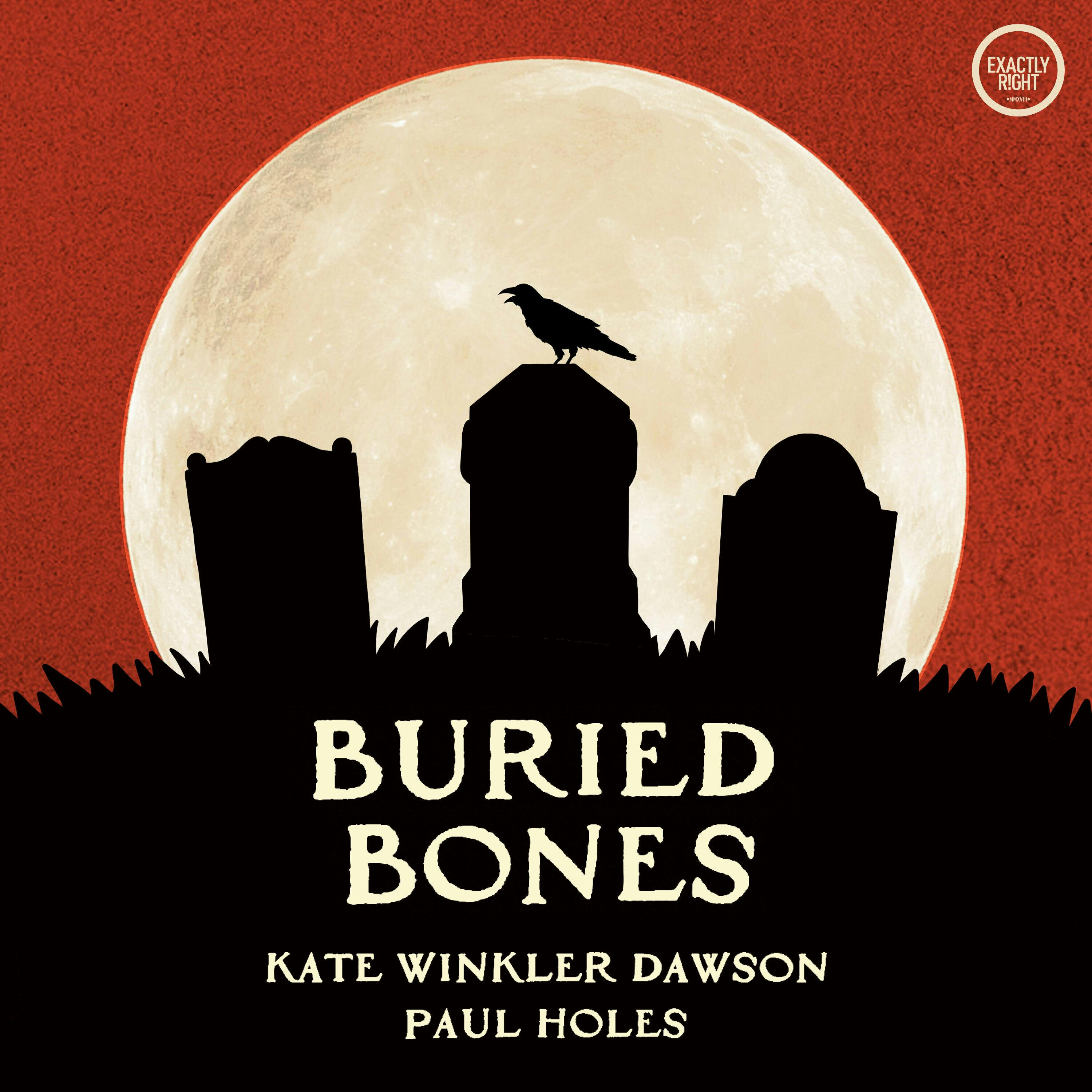
Buried Bones - a historical true crime podcast with Kate Winkler Dawson and Paul Holes
Exactly Right and iHeartPodcasts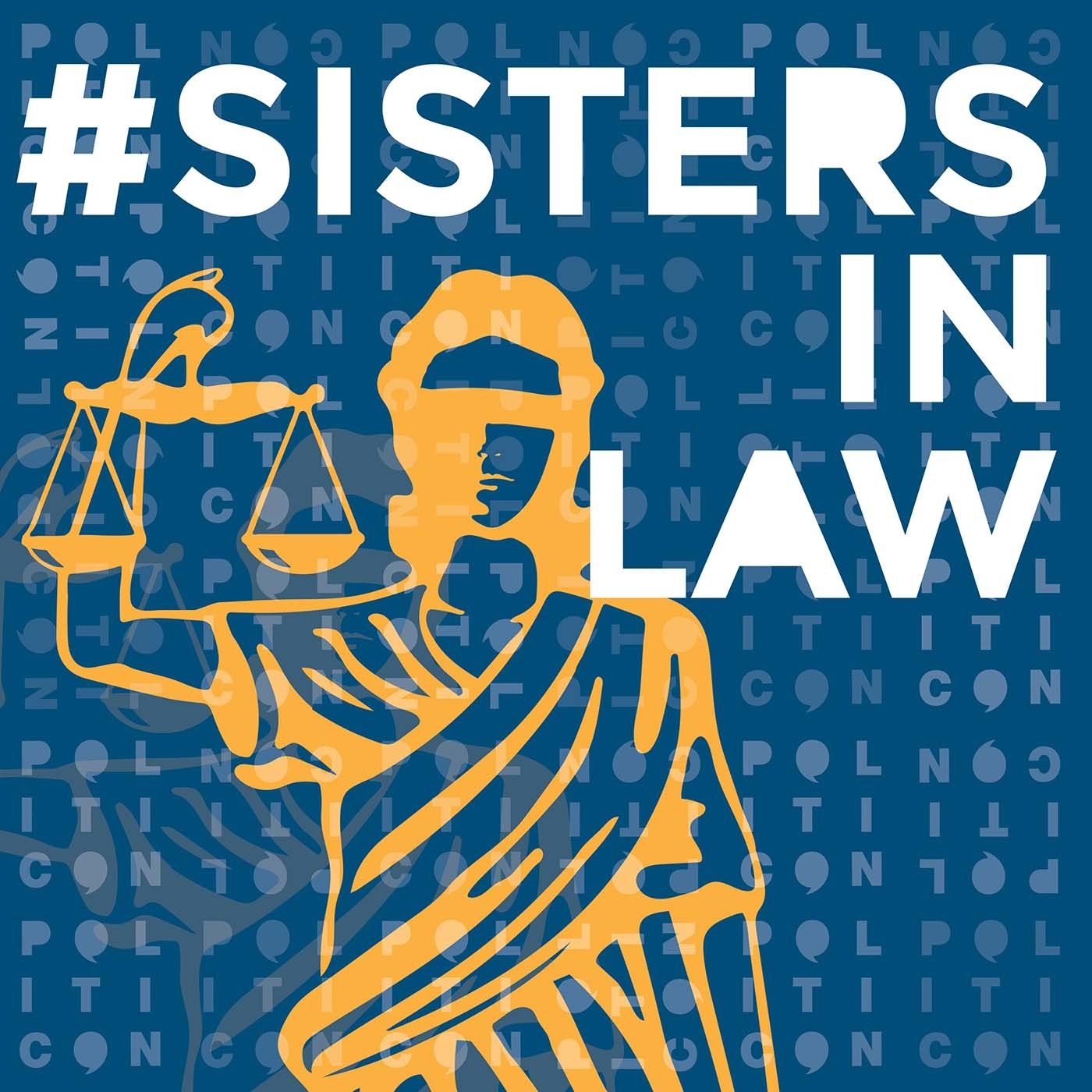
#SistersInLaw
Politicon
The Ancients
History Hit
Fresh Air
NPR
The Rachel Maddow Show
Rachel Maddow, MS NOW
Another Mother Runner
Another Mother Runner
Gone Medieval
History Hit
The Women's Running Podcast
Esther Newman
Throughline
NPR
Mysteries at the Museum
Travel Channel
Irish History Podcast
Fin Dwyer
Creating Her Best Life
Shannan Christiansen
Three Castles Burning
Donal Fallon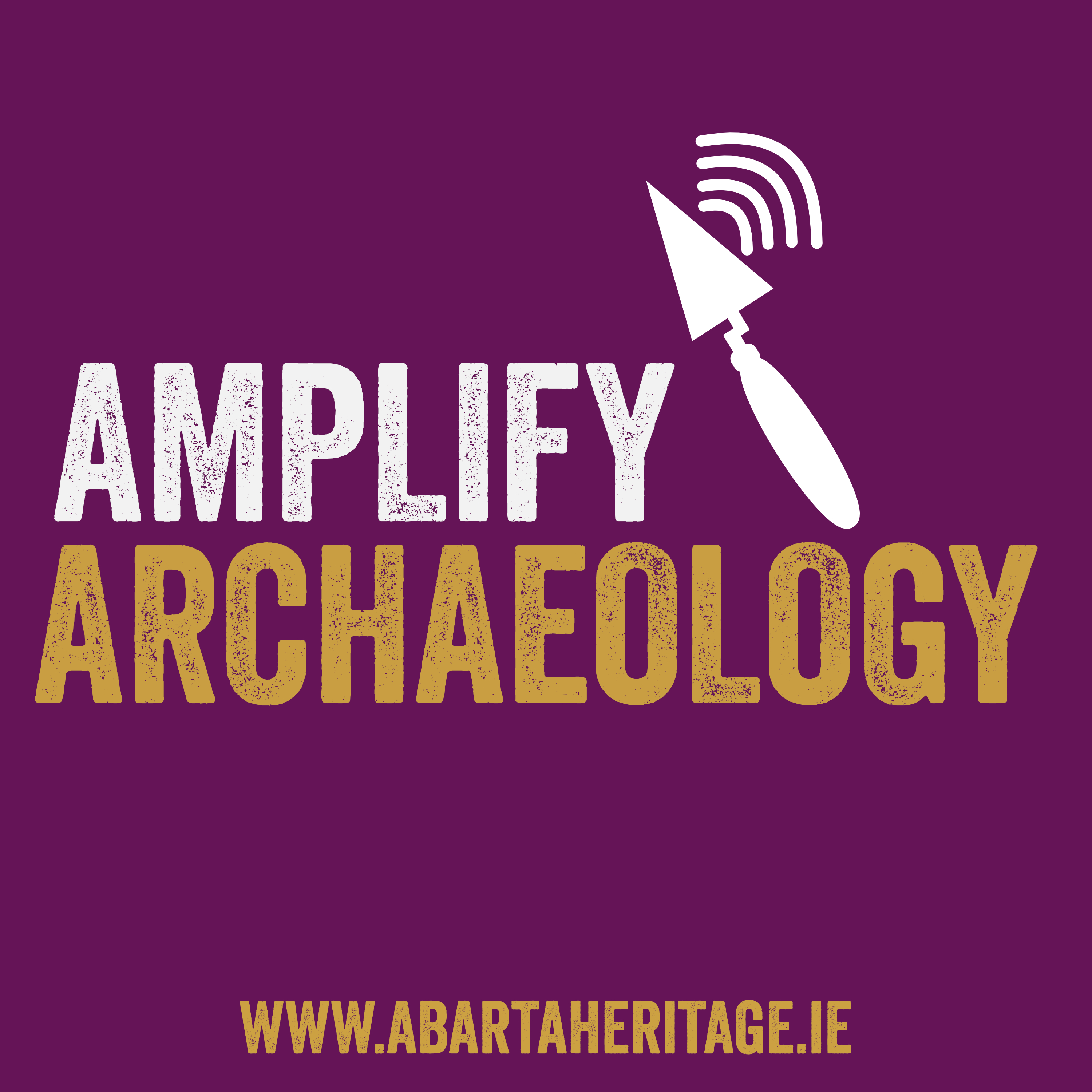
Amplify Archaeology Podcast
Neil Jackman
Serial
Serial Productions & The New York Times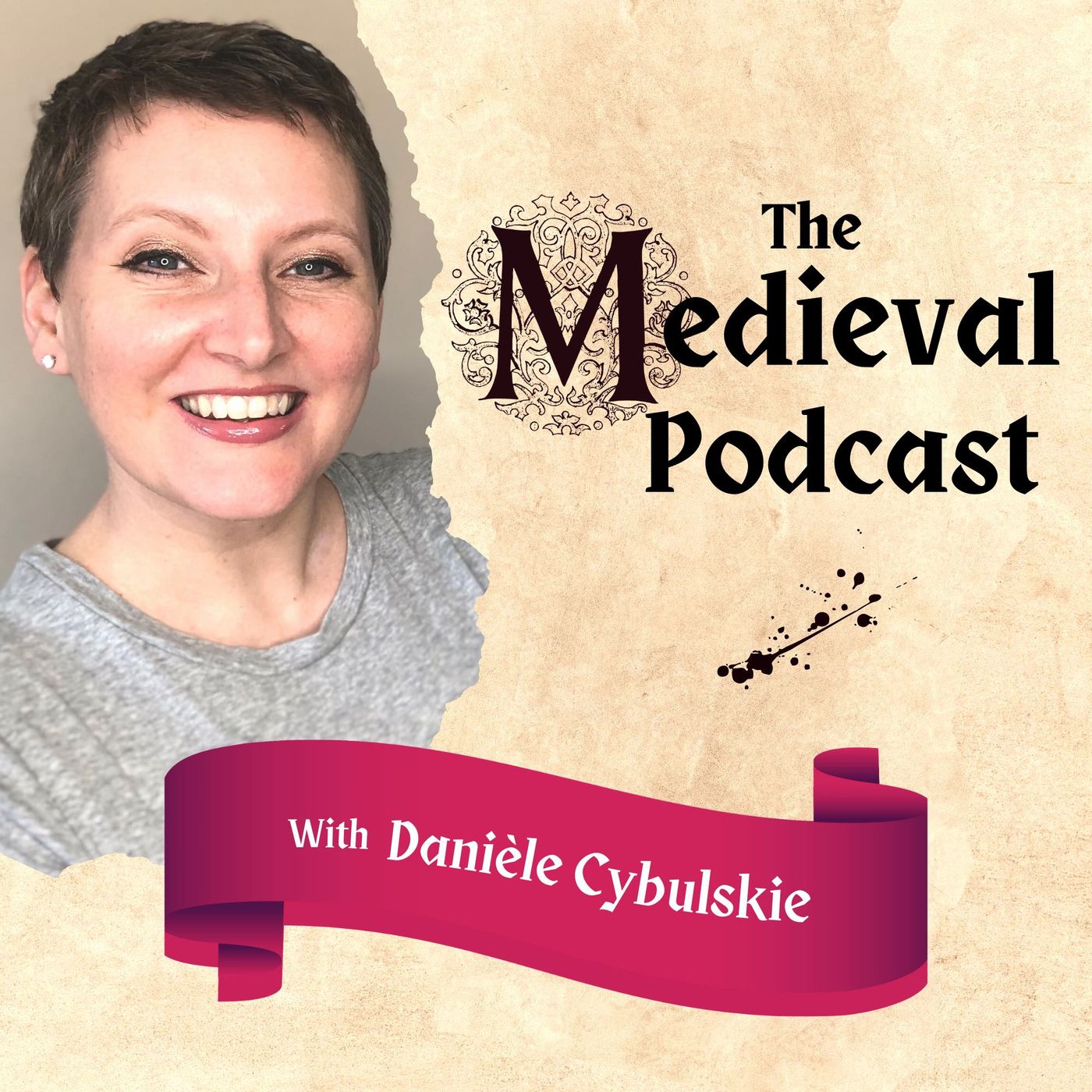
The Medieval Podcast
Danièle Cybulskie
Last Podcast On The Left
The Last Podcast Network
Small Town Murder
James Pietragallo, Jimmie Whisman
Your Stupid Opinions
James Pietragallo & Jimmie Whisman
Hacking Your ADHD
William Curb
The ADHD Adults Podcast
James Brown, Alex Conner and Sam Brown
ADHD reWired
Eric Tivers, LCSW, ADHD-CCSP
Killer Psyche
Wondery | Treefort Media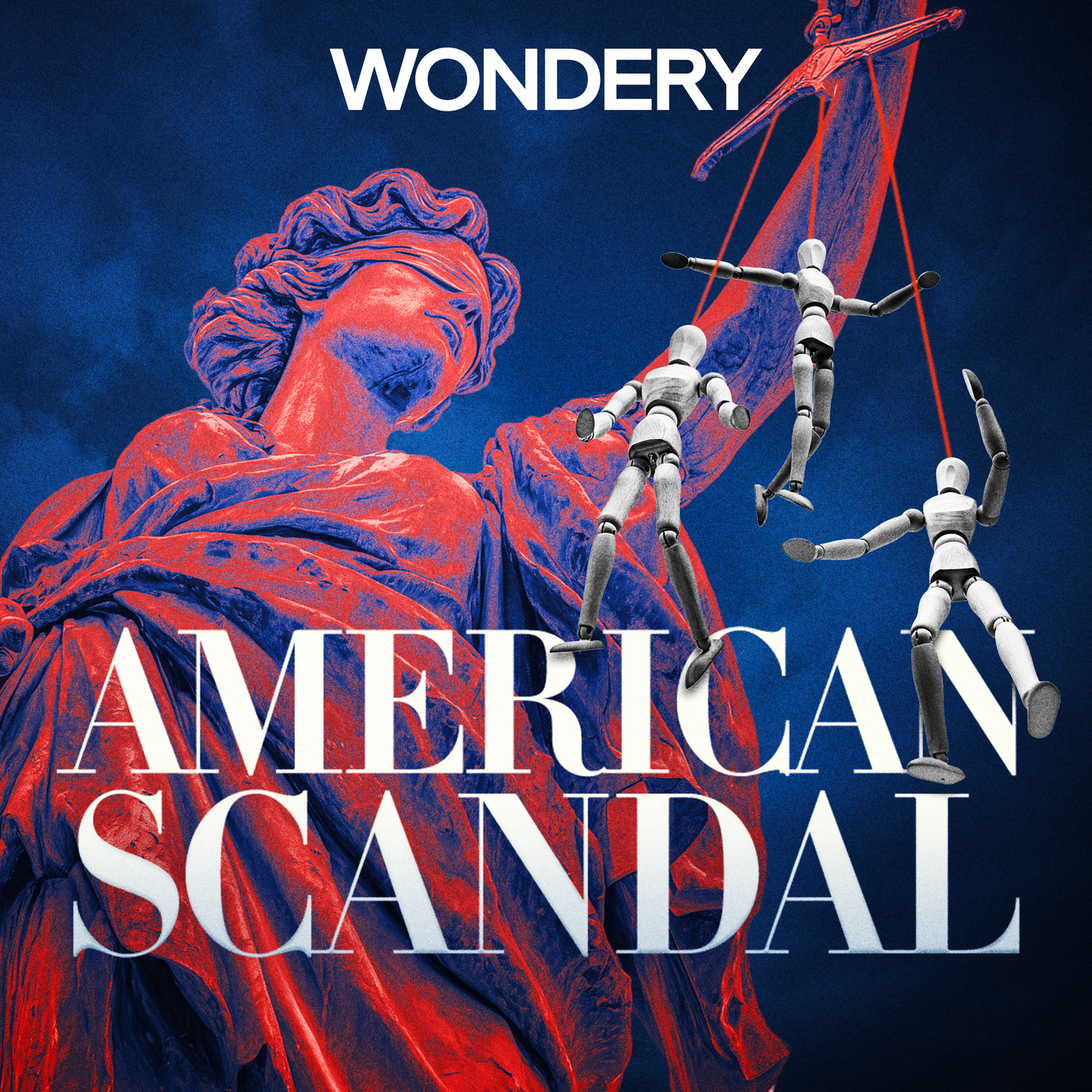
American Scandal
Wondery
American History Tellers
Wondery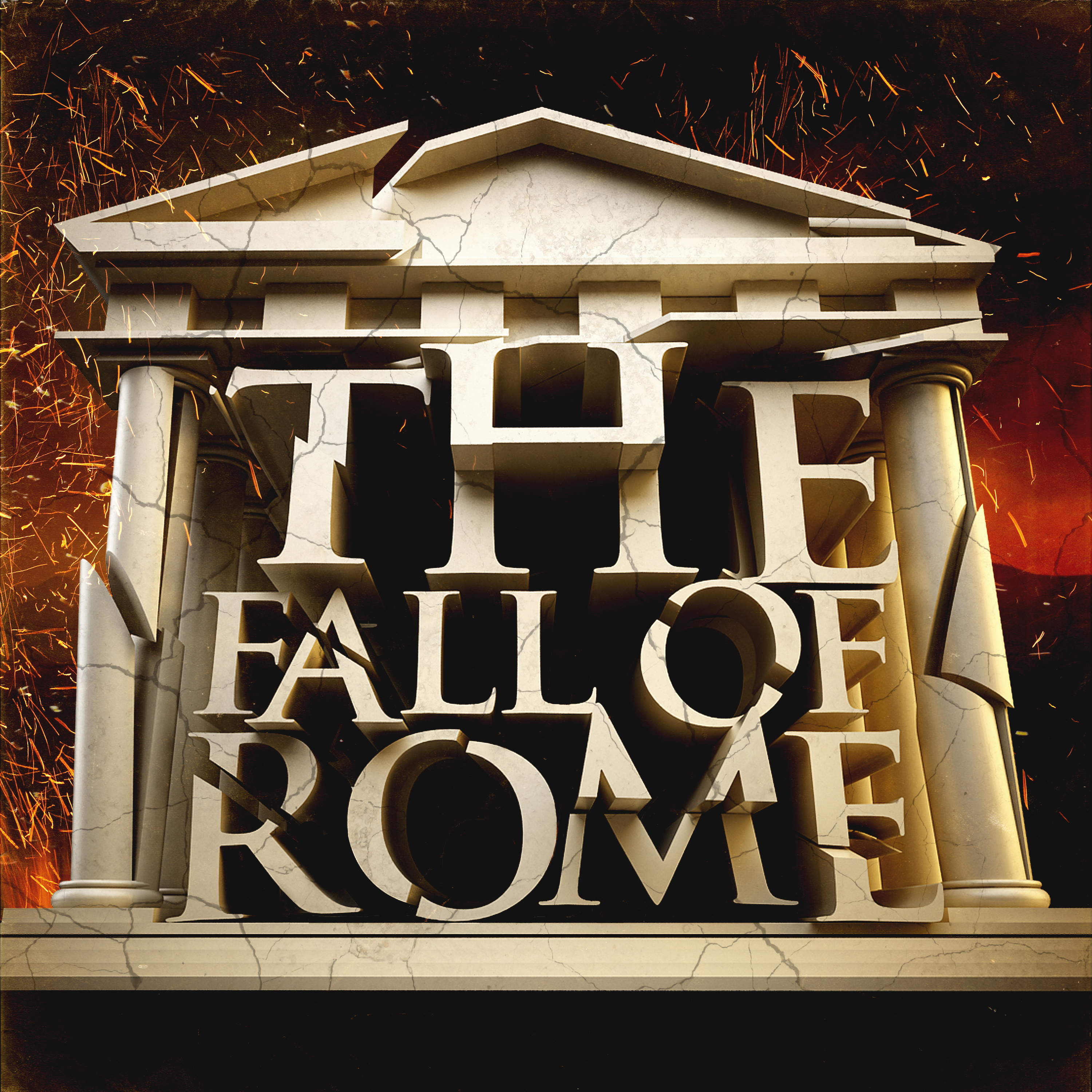
The Fall of Rome Podcast
Patrick Wyman / Wondery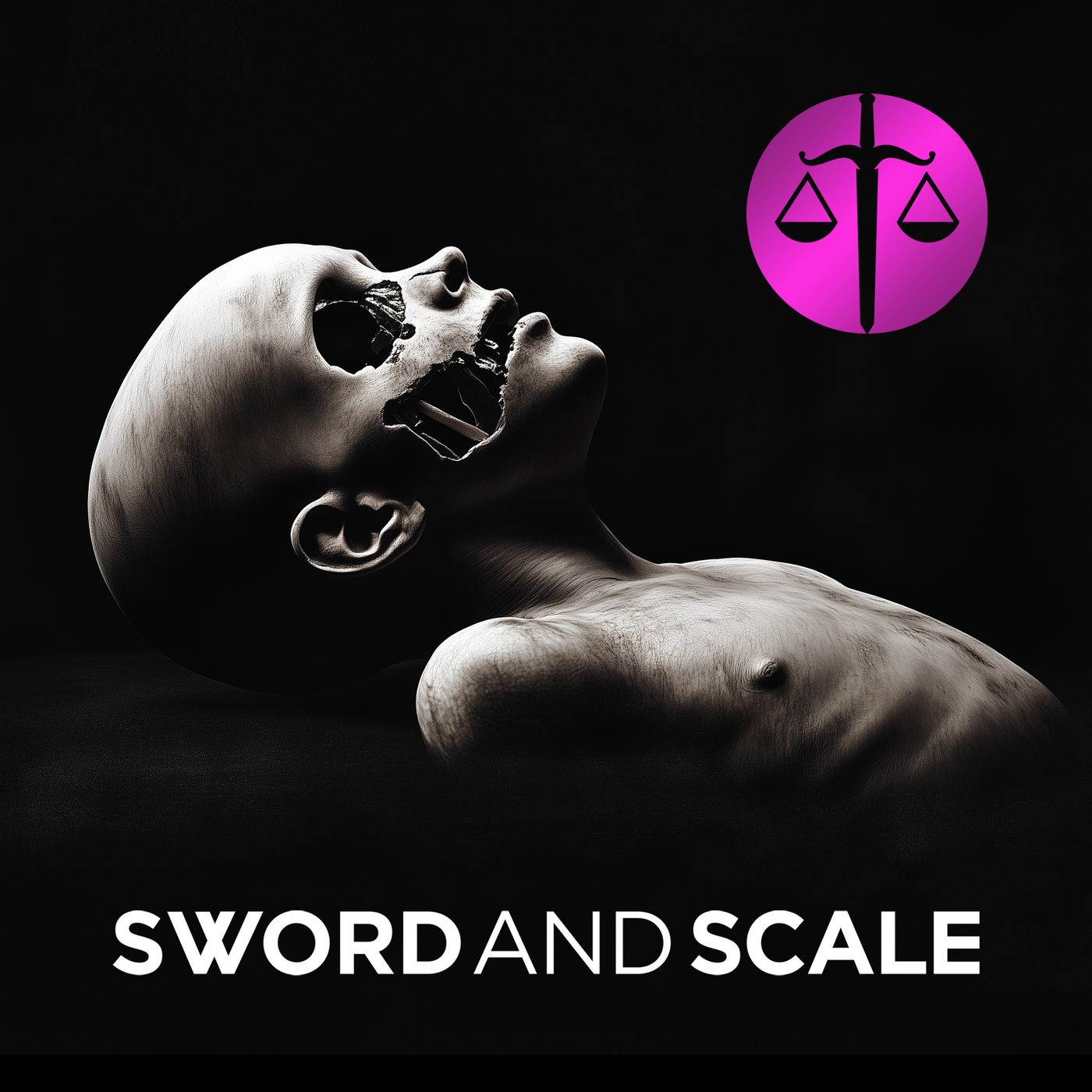
Sword and Scale
Sword and Scale
Ukraine: The Latest
The Telegraph



